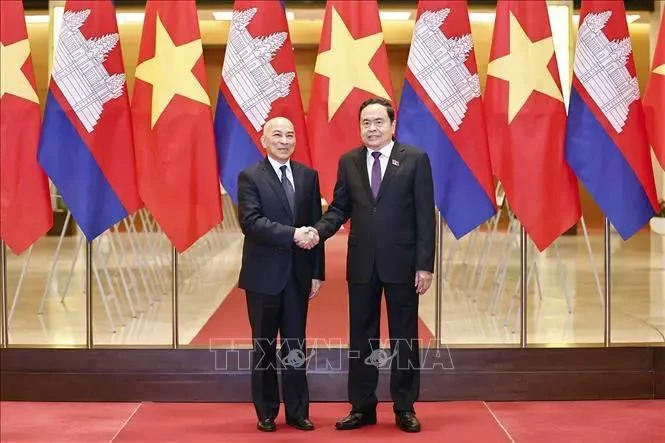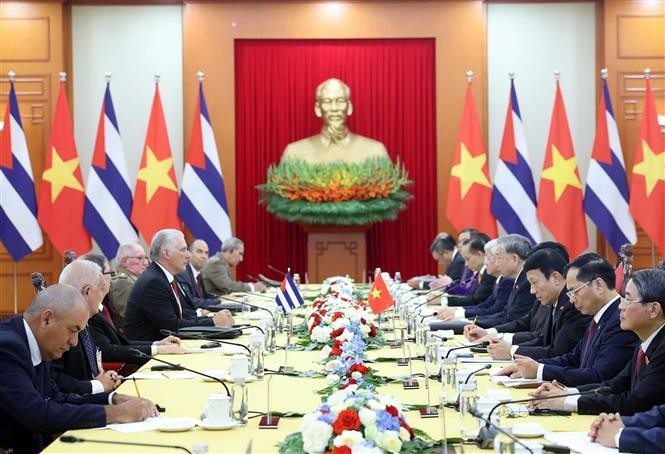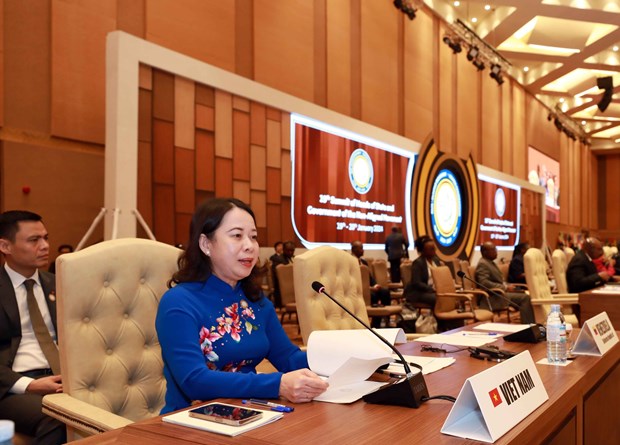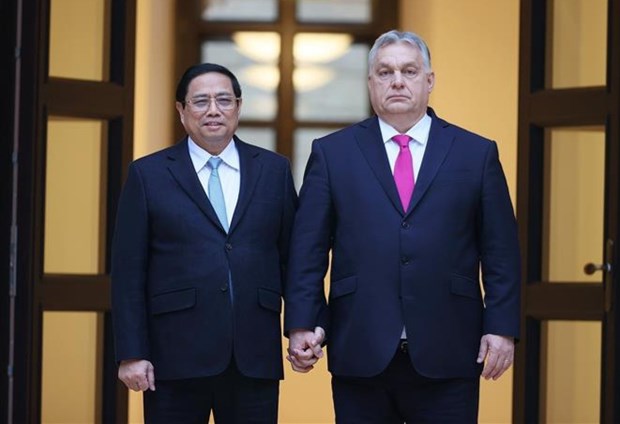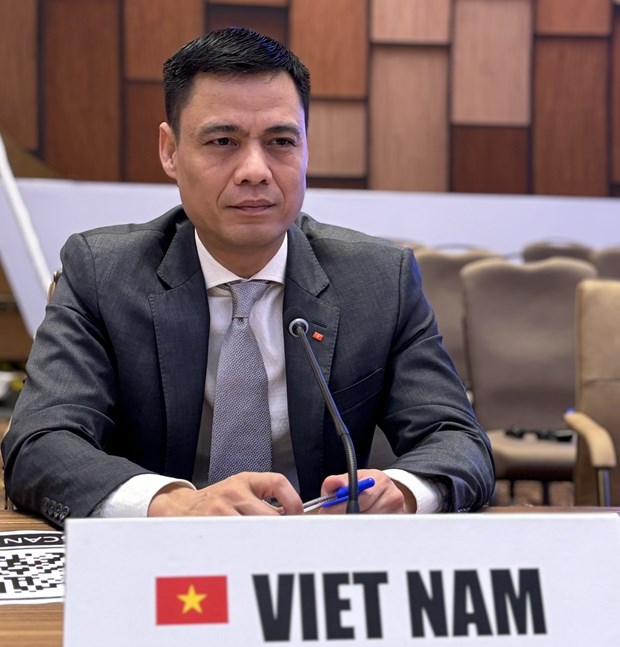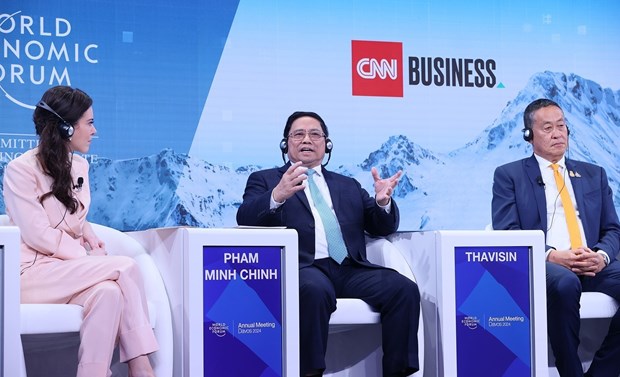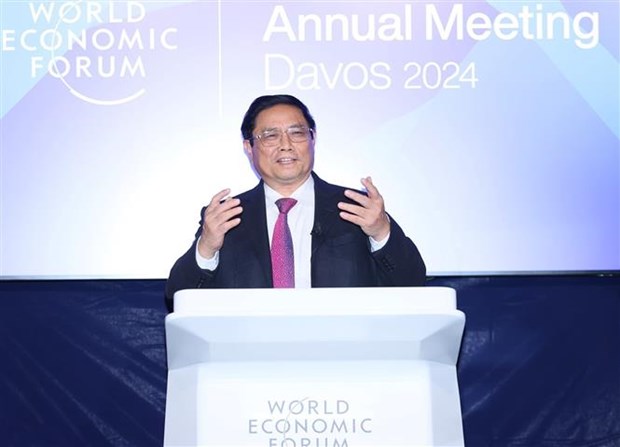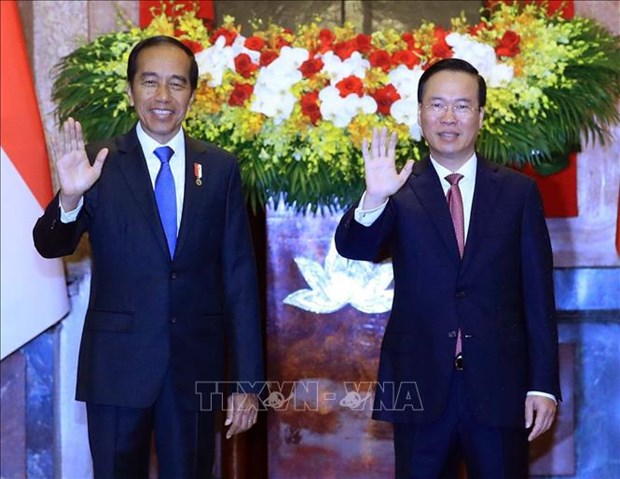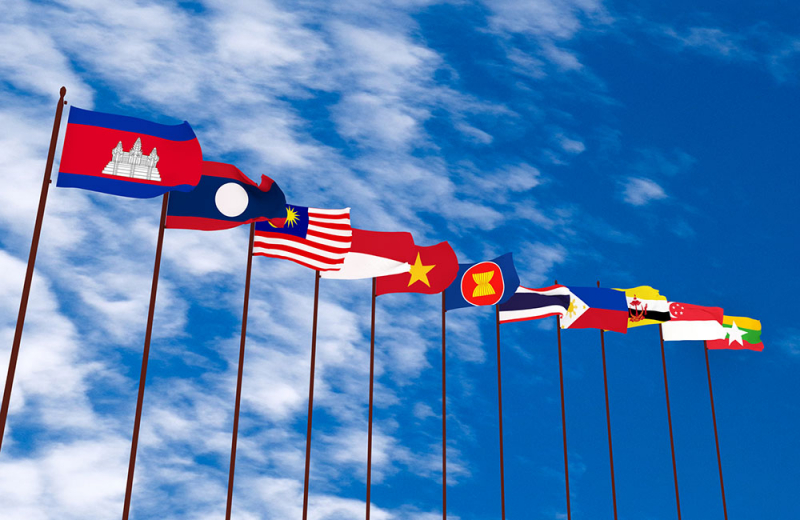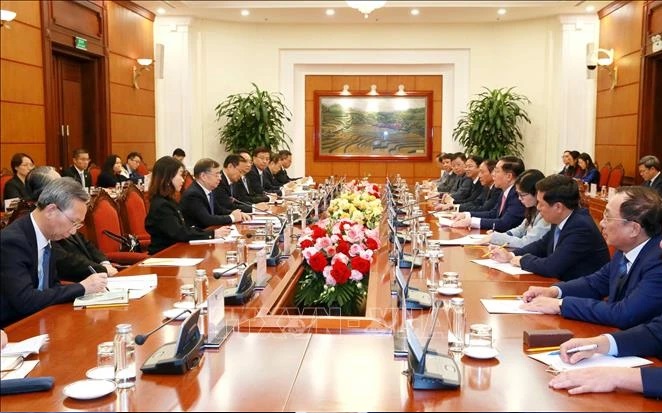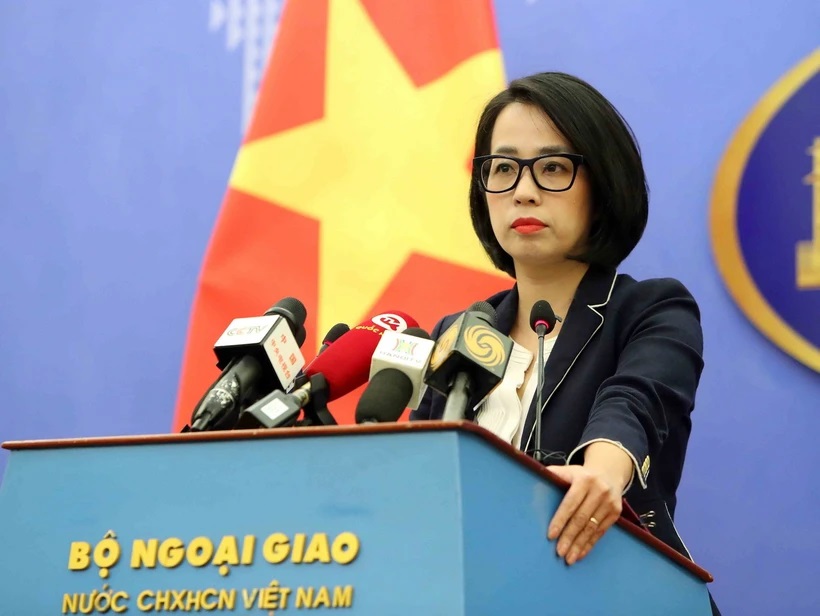Ambassador of Switzerland to Viet Nam Thomas Gass. (Photo: VNA)
The diplomat made the remark in an interview granted to the Viet Nam News Agency ahead of Prime Minister Pham Minh Chinh’s upcoming trip to Davos to attend the meeting and make his official visits to Hungary and Romania from January 16-23.
Emphasising the importance of the forum amidst global upheavals, Gass said it serves as a platform for leaders from countries and sectors to seek solutions and affirm their responsibility for the implementation of common visions, including the Sustainable Development Goals (SDGs) and the Paris Agreement on Climate Change.
It also encourages pioneers to put in place positive initiatives, he said, stressing the need for recommitments to multilateralism and the international rule of law, the establishment and upgrade of new platforms for dialogues, and the building of stronger partnerships.
The ambassador also highlighted the importance of PM Chinh’s participation at the WEF-54, and cited the leader at another WEF event in China last June as saying international solidarity, multilateralism and people-centred would help the world weather “headwinds”.
The PM can deliver remarks completely with self-confidence at the upcoming meeting as Viet Nam has made remarkable contributions to addressing global issues, and the country deserves international acknowledgement.
As an active member of the Association of Southeast Asian Nations (ASEAN), Viet Nam plays a crucial role in promoting regional stability and cooperation, he said, noting its engagement in UN peacekeeping operations, including those in South Sudan and Central African Republic.
Viet Nam has taken important steps to cut carbon footprint, towards achieving its commitment to net zero emissions by 2050, and the country is making efforts to raise its climate resilience through the implementation of a national action plan and measures to protect the vulnerable in this regard, Gass continued.
The country is also working hard to improve its energy security by investing in renewable energy sources like solar and wind energy.
Regarding the memorandum of understanding between Viet Nam and the WEF for 2023-2026, the diplomat said the document will enable the Southeast Asian nation to access international resources and expertise, and join WEF programmes globally.
He also lauded efforts by Vietnamese competent agencies in reforming administrative procedures, improving education quality, developing human resources, and promoting digital economy, as reflected through the increasing FDI influx in the country.
However, the diplomat stressed, Viet Nam still needs to exert greater efforts to maintain its competitive edges.
For the relations between Viet Nam and Switzerland, Gass said Switzerland was one of the first Western countries to officially recognise the Democratic Republic of Viet Nam (now the Socialist Republic of Viet Nam) in 1971, and the bilateral relationship has been developing dynamically, with its focus shifting from economic development cooperation to trade.
Switzerland welcomes positive progress in negotiations on the free trade agreement between the European Free Trade Association (EFTA) and Viet Nam, he said, adding that once coming into effect, the deal will create a favourable framework and pave the way for Swiss investments in Viet Nam, thus fostering the bilateral trade, he continued.
The ambassador commended Viet Nam’s foreign policy and dynamic economic environment, which has prompted many countries to seek the upgrade of their partnerships with Viet Nam.
The diplomat also expressed his hope for the elevation of the Viet Nam-Switzerland relations in the time ahead, saying he is making efforts to push ahead with the progress.
According to Gass, Switzerland's main exports to Viet Nam include pharmaceuticals, chemicals, machinery and precision mechanics, while its imports from the Southeast Asian country are electronics, footwear, textiles-garments, and seafood.
Since 2008, economic development cooperation between the two countries has focused on improving public finance, enhancing the capacity of the financial sector, raising the competitiveness of small- and medium-sizes enterprises, urban planning, climate adaptation, and sustainable growth.
Besides, the two sides have maintained cooperation in science-technology and delegation exchange, he said, recalling the latest visit to Viet Nam by President of the National Council of Switzerland Martin Candinas last June.
The ambassador also called the forum an opportunity for the two countries to hold their high-level meetings./.
Emphasising the importance of the forum amidst global upheavals, Gass said it serves as a platform for leaders from countries and sectors to seek solutions and affirm their responsibility for the implementation of common visions, including the Sustainable Development Goals (SDGs) and the Paris Agreement on Climate Change.
It also encourages pioneers to put in place positive initiatives, he said, stressing the need for recommitments to multilateralism and the international rule of law, the establishment and upgrade of new platforms for dialogues, and the building of stronger partnerships.
The ambassador also highlighted the importance of PM Chinh’s participation at the WEF-54, and cited the leader at another WEF event in China last June as saying international solidarity, multilateralism and people-centred would help the world weather “headwinds”.
The PM can deliver remarks completely with self-confidence at the upcoming meeting as Viet Nam has made remarkable contributions to addressing global issues, and the country deserves international acknowledgement.
As an active member of the Association of Southeast Asian Nations (ASEAN), Viet Nam plays a crucial role in promoting regional stability and cooperation, he said, noting its engagement in UN peacekeeping operations, including those in South Sudan and Central African Republic.
Viet Nam has taken important steps to cut carbon footprint, towards achieving its commitment to net zero emissions by 2050, and the country is making efforts to raise its climate resilience through the implementation of a national action plan and measures to protect the vulnerable in this regard, Gass continued.
The country is also working hard to improve its energy security by investing in renewable energy sources like solar and wind energy.
Regarding the memorandum of understanding between Viet Nam and the WEF for 2023-2026, the diplomat said the document will enable the Southeast Asian nation to access international resources and expertise, and join WEF programmes globally.
He also lauded efforts by Vietnamese competent agencies in reforming administrative procedures, improving education quality, developing human resources, and promoting digital economy, as reflected through the increasing FDI influx in the country.
However, the diplomat stressed, Viet Nam still needs to exert greater efforts to maintain its competitive edges.
For the relations between Viet Nam and Switzerland, Gass said Switzerland was one of the first Western countries to officially recognise the Democratic Republic of Viet Nam (now the Socialist Republic of Viet Nam) in 1971, and the bilateral relationship has been developing dynamically, with its focus shifting from economic development cooperation to trade.
Switzerland welcomes positive progress in negotiations on the free trade agreement between the European Free Trade Association (EFTA) and Viet Nam, he said, adding that once coming into effect, the deal will create a favourable framework and pave the way for Swiss investments in Viet Nam, thus fostering the bilateral trade, he continued.
The ambassador commended Viet Nam’s foreign policy and dynamic economic environment, which has prompted many countries to seek the upgrade of their partnerships with Viet Nam.
The diplomat also expressed his hope for the elevation of the Viet Nam-Switzerland relations in the time ahead, saying he is making efforts to push ahead with the progress.
According to Gass, Switzerland's main exports to Viet Nam include pharmaceuticals, chemicals, machinery and precision mechanics, while its imports from the Southeast Asian country are electronics, footwear, textiles-garments, and seafood.
Since 2008, economic development cooperation between the two countries has focused on improving public finance, enhancing the capacity of the financial sector, raising the competitiveness of small- and medium-sizes enterprises, urban planning, climate adaptation, and sustainable growth.
Besides, the two sides have maintained cooperation in science-technology and delegation exchange, he said, recalling the latest visit to Viet Nam by President of the National Council of Switzerland Martin Candinas last June.
The ambassador also called the forum an opportunity for the two countries to hold their high-level meetings./.
Source: VNA




